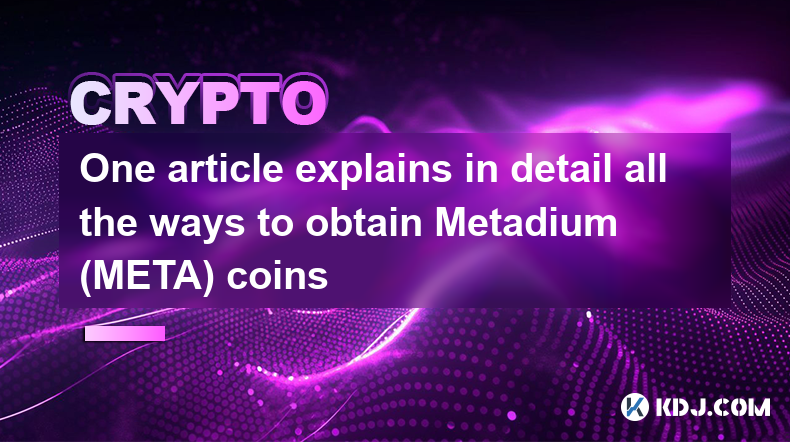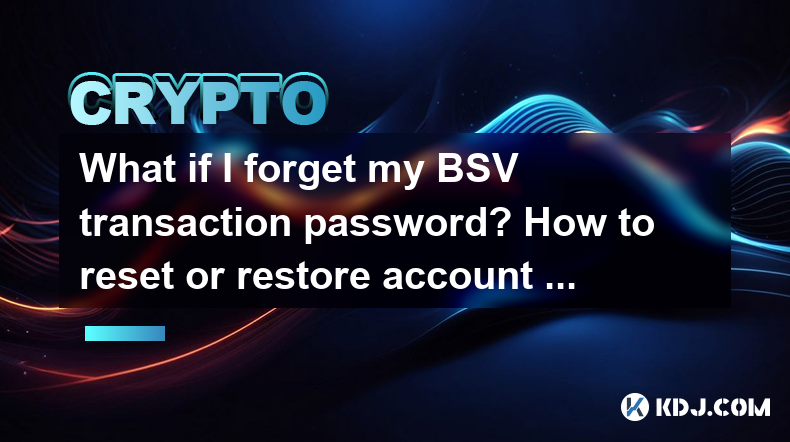-
 Bitcoin
Bitcoin $96,508.5911
-0.92% -
 Ethereum
Ethereum $1,838.4653
-0.08% -
 Tether USDt
Tether USDt $1.0003
0.00% -
 XRP
XRP $2.2142
-0.12% -
 BNB
BNB $599.0086
-0.08% -
 Solana
Solana $148.7294
-0.87% -
 USDC
USDC $1.0000
-0.02% -
 Dogecoin
Dogecoin $0.1792
-1.10% -
 Cardano
Cardano $0.7223
2.19% -
 TRON
TRON $0.2472
0.22% -
 Sui
Sui $3.3412
-3.22% -
 Chainlink
Chainlink $14.4807
-1.60% -
 Avalanche
Avalanche $20.9283
-2.20% -
 Stellar
Stellar $0.2735
-1.33% -
 UNUS SED LEO
UNUS SED LEO $8.9254
0.08% -
 Toncoin
Toncoin $3.1646
-0.14% -
 Shiba Inu
Shiba Inu $0.0...01324
-1.68% -
 Hedera
Hedera $0.1842
-1.63% -
 Bitcoin Cash
Bitcoin Cash $369.7111
-3.04% -
 Hyperliquid
Hyperliquid $20.7437
-0.99% -
 Litecoin
Litecoin $87.2417
-1.38% -
 Polkadot
Polkadot $4.1326
-1.80% -
 Dai
Dai $1.0001
0.00% -
 Monero
Monero $279.3151
-3.07% -
 Bitget Token
Bitget Token $4.3843
-1.34% -
 Ethena USDe
Ethena USDe $1.0007
-0.01% -
 Pi
Pi $0.5876
-1.18% -
 Pepe
Pepe $0.0...08457
-3.07% -
 Uniswap
Uniswap $5.1911
-1.50% -
 Aptos
Aptos $5.2513
-3.80%
One article explains in detail all the ways to obtain Metadium (META) coins
To obtain Metadium (META) coins, one can purchase them on centralized exchanges, trade them on decentralized exchanges, stake them in non-custodial wallets, participate in airdrops and bounties, use the Metadium wallet, or contribute to the Metadium ecosystem.
Dec 31, 2024 at 04:37 am

How to Obtain Metadium (META) Coins: A Comprehensive Guide
Metadium (META) is a cryptocurrency that powers the Metadium blockchain, a platform for developing and deploying decentralized applications (dApps). META can be obtained through various methods, each with its own advantages and drawbacks. This guide will explore all the available ways to acquire META coins, addressing potential questions and providing detailed instructions.
Key Points:
- Buying on Centralized Exchanges: Acquiring META from established platforms like Binance, Huobi, and KuCoin offers convenience and liquidity.
- Decentralized Exchanges (DEXs): Trading META on DEXs, such as Uniswap and Sushiswap, allows for direct transactions without intermediaries.
- Staking: Holding META in a non-custodial wallet enables staking, where users earn rewards for contributing to the network's security.
- Participating in Airdrops and Bounties: Airdrops and bounties involve distributing free META coins to promote the project or reward community contributions.
- Using the Metadium Wallet: The Metadium wallet provides a secure storage option as well as the ability to earn META through its staking program.
- Participating in the Metadium Ecosystem: Contributing to the Metadium ecosystem, such as developing dApps or providing liquidity, may qualify for rewards in META.
Buying on Centralized Exchanges:
- Register an account: Create an account on a centralized exchange that supports META trading, such as Binance or KuCoin.
- Deposit funds: Transfer funds from your bank account or another cryptocurrency wallet into your exchange account.
- Find the META trading pair: Locate the META trading pair (e.g., META/USDT or META/BTC) on the exchange's interface.
- Place a buy order: Specify the amount of META you wish to purchase and the price you're willing to pay.
- Confirm your transaction: Review the order details and confirm the purchase.
- Withdrawal to a non-custodial wallet: Once the transaction is complete, you may withdraw your META coins to a non-custodial wallet for enhanced security.
Trading on Decentralized Exchanges (DEXs):
- Connect to a DEX: Choose a DEX that supports META trading, such as Uniswap or Sushiswap, and connect your MetaMask wallet.
- Set up the swap transaction: Select the META trading pair and specify the amount of META you wish to purchase.
- Approve the transaction: Your wallet will prompt you to approve the transaction, which may involve paying a gas fee.
- Complete the swap: Once the transaction is approved, the META coins will be automatically swapped into your wallet.
Staking:
- Acquire a non-custodial wallet: Obtain a non-custodial wallet that supports META staking, such as the Metadium wallet or Ledger hardware wallet.
- Transfer META to your wallet: Send your META coins from an exchange or DEX to your non-custodial wallet.
- Stake your META: Within your wallet's interface, navigate to the staking section and select the amount of META you wish to stake.
- Receive staking rewards: Your wallet will automatically earn staking rewards, which are typically paid out in the form of additional META coins.
Participating in Airdrops and Bounties:
- Identify potential airdrops and bounties: Monitor cryptocurrency news and forums to learn about upcoming airdrops and bounties related to META.
- Meet the eligibility requirements: Each airdrop or bounty may have specific eligibility requirements, such as following social media accounts or completing tasks.
- Provide the necessary information: Typically, you will need to provide your Metadium wallet address or other pertinent details to claim the rewards.
Using the Metadium Wallet:
- Install and create a Metadium wallet: Download the Metadium wallet app or software for your device and create a new wallet.
- Transfer META to your wallet: Send your META coins from an exchange or DEX to your Metadium wallet.
- Stake your META: Within the Metadium wallet's interface, select the staking option and indicate the amount of META you wish to stake.
- Earn staking rewards: You will automatically earn staking rewards, which are credited directly to your Metadium wallet.
Participating in the Metadium Ecosystem:
- Develop dApps on the Metadium blockchain: Contribute to the Metadium ecosystem by developing and deploying dApps on the platform.
- Provide liquidity: Become a liquidity provider on decentralized exchanges or other platforms within the Metadium ecosystem.
- Participate in governance: Take part in Metadium governance by voting on proposals and influencing the direction of the project.
FAQs:
- What is the current price of META?
The real-time price of META can vary significantly, so it's best to check the latest market data from reputable sources. - What is the total supply of META?
The total supply of META is capped at 10 billion coins. - What are the fees associated with trading META?
Fees for trading META vary depending on the platform and transaction type. Centralized exchanges generally charge trading fees, while decentralized exchanges may require gas fees for transactions. - Is it possible to mine META?
META cannot be mined, as it uses a proof-of-stake consensus mechanism rather than a proof-of-work algorithm.
Disclaimer:info@kdj.com
The information provided is not trading advice. kdj.com does not assume any responsibility for any investments made based on the information provided in this article. Cryptocurrencies are highly volatile and it is highly recommended that you invest with caution after thorough research!
If you believe that the content used on this website infringes your copyright, please contact us immediately (info@kdj.com) and we will delete it promptly.
- Remember When Avalanche ($AVAX) Launched Its ICO at Just $0.50? Now, Qubetics ($TICS) Presents a Similar Opportunity
- 2025-05-04 00:10:13
- Have You Ever Wondered Which Crypto Projects Will Actually Survive the Hype and Hold Long-Term Value?
- 2025-05-04 00:10:13
- Bitcoin (BTC) Price Predictions Range from $122,000 to a Staggering $700,000
- 2025-05-04 00:05:12
- Cardano Founder Charles Hoskinson Compares the Blockchain Solution's Governance System with Mainstream Politics
- 2025-05-04 00:05:12
- The meme coin mania is back—and it’s louder, weirder, and more profitable than ever
- 2025-05-04 00:00:52
- Troller Cat Presale Goes Wild with 10k% ROI as Brett Eyes $2B MarketCap and Neiro Hits ATH
- 2025-05-04 00:00:52
Related knowledge

BSV transaction fees suddenly increased? How to adjust the handling fee to save costs?
May 02,2025 at 06:42am
Understanding BSV Transaction FeesBSV (Bitcoin SV) aims to fulfill the original vision of Bitcoin as a peer-to-peer electronic cash system. One of the key elements in this system is the transaction fee, which compensates miners for including transactions in the blockchain. Recently, users have noticed a sudden increase in BSV transaction fees, which can...

Does BSV transaction require real-name authentication? Is anonymous trading feasible?
May 03,2025 at 03:14pm
The question of whether BSV (Bitcoin SV) transactions require real-name authentication and whether anonymous trading is feasible is a complex one, deeply intertwined with the broader dynamics of cryptocurrency regulations and blockchain technology. Let's delve into these aspects to provide a comprehensive understanding. Understanding BSV and Its Transac...

How to solve the high slippage of BSV transactions? How to choose between limit and market orders?
May 02,2025 at 09:01pm
High slippage can be a significant concern for traders dealing with Bitcoin SV (BSV) transactions. Slippage refers to the difference between the expected price of a trade and the price at which the trade is actually executed. This can occur in fast-moving markets or when there is low liquidity. To address this issue, understanding the mechanics of slipp...

What if BSV node synchronization is slow? How to optimize local wallet performance?
May 03,2025 at 04:35pm
When dealing with BSV (Bitcoin SV) node synchronization and optimizing local wallet performance, it's crucial to understand the underlying issues and implement effective solutions. Slow synchronization and poor wallet performance can significantly hinder your experience with the BSV network. This article will delve into the reasons behind slow BSV node ...

How to check BSV transaction records? How to use the blockchain browser?
May 03,2025 at 06:50am
Checking BSV (Bitcoin SV) transaction records and using a blockchain browser are essential skills for anyone involved in the cryptocurrency space. These tools allow you to verify transactions, check wallet balances, and understand the flow of funds on the blockchain. This article will guide you through the process of checking BSV transaction records and...

What if I forget my BSV transaction password? How to reset or restore account permissions?
May 02,2025 at 02:49pm
Forgetting your BSV (Bitcoin SV) transaction password can be a stressful experience, but there are steps you can take to reset or restore your account permissions. This article will guide you through the process, ensuring you understand each step and potential solutions available to you. Understanding BSV Transaction PasswordsBSV transaction passwords a...

BSV transaction fees suddenly increased? How to adjust the handling fee to save costs?
May 02,2025 at 06:42am
Understanding BSV Transaction FeesBSV (Bitcoin SV) aims to fulfill the original vision of Bitcoin as a peer-to-peer electronic cash system. One of the key elements in this system is the transaction fee, which compensates miners for including transactions in the blockchain. Recently, users have noticed a sudden increase in BSV transaction fees, which can...

Does BSV transaction require real-name authentication? Is anonymous trading feasible?
May 03,2025 at 03:14pm
The question of whether BSV (Bitcoin SV) transactions require real-name authentication and whether anonymous trading is feasible is a complex one, deeply intertwined with the broader dynamics of cryptocurrency regulations and blockchain technology. Let's delve into these aspects to provide a comprehensive understanding. Understanding BSV and Its Transac...

How to solve the high slippage of BSV transactions? How to choose between limit and market orders?
May 02,2025 at 09:01pm
High slippage can be a significant concern for traders dealing with Bitcoin SV (BSV) transactions. Slippage refers to the difference between the expected price of a trade and the price at which the trade is actually executed. This can occur in fast-moving markets or when there is low liquidity. To address this issue, understanding the mechanics of slipp...

What if BSV node synchronization is slow? How to optimize local wallet performance?
May 03,2025 at 04:35pm
When dealing with BSV (Bitcoin SV) node synchronization and optimizing local wallet performance, it's crucial to understand the underlying issues and implement effective solutions. Slow synchronization and poor wallet performance can significantly hinder your experience with the BSV network. This article will delve into the reasons behind slow BSV node ...

How to check BSV transaction records? How to use the blockchain browser?
May 03,2025 at 06:50am
Checking BSV (Bitcoin SV) transaction records and using a blockchain browser are essential skills for anyone involved in the cryptocurrency space. These tools allow you to verify transactions, check wallet balances, and understand the flow of funds on the blockchain. This article will guide you through the process of checking BSV transaction records and...

What if I forget my BSV transaction password? How to reset or restore account permissions?
May 02,2025 at 02:49pm
Forgetting your BSV (Bitcoin SV) transaction password can be a stressful experience, but there are steps you can take to reset or restore your account permissions. This article will guide you through the process, ensuring you understand each step and potential solutions available to you. Understanding BSV Transaction PasswordsBSV transaction passwords a...
See all articles




















































































